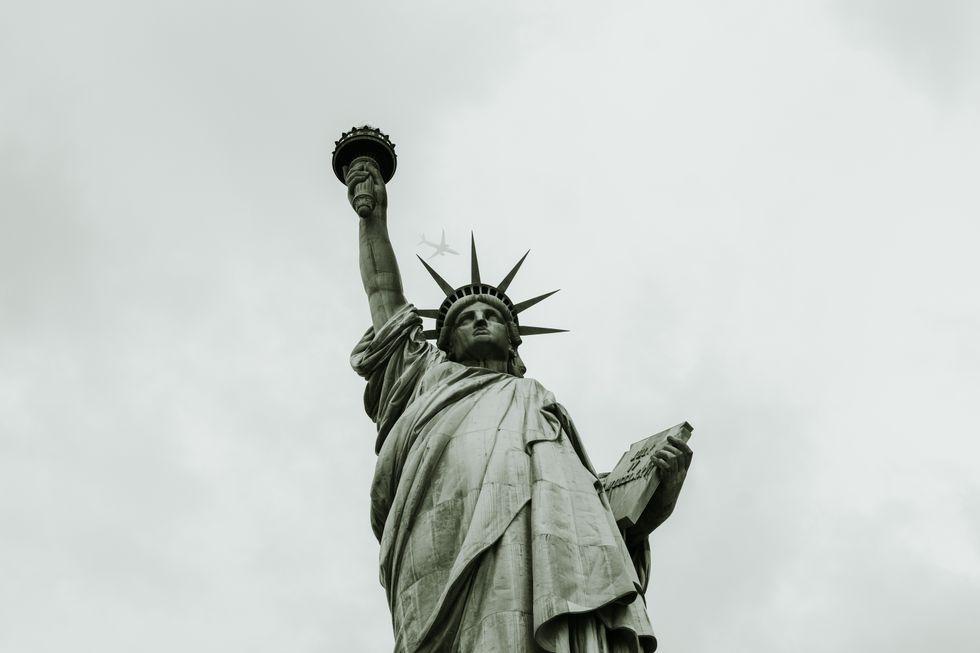Right before I left for college in New England, I read a thought-provoking article in Boston Magazine called "How Liberal Professors Are Ruining College." Coming from a progressive and liberal city with a public school lines with liberal teachers and staff, I expected my New England college experience to be much of the same. Based off of the article I read, liberal professors outnumber conservative ones 28 to 1, which only confirmed my preconceptions. The foremost problem with these numbers is that these liberal views are widely discussed and pressed upon students who might not share the same views and therefore become more alienated. In New England, appearing even a step to the right can lead to ridicule by professors and peers alike. It's a tricky road to navigate in 2017, and after being abroad and so far removed from the intense American political scene, I have found the New England college political scene to be quite accurately described by Boston Magazine with a few exceptions.
The first thing we did upon settling into campus was sign up for clubs. Half of my friends proudly declared they had signed up for Marist Democrats yet the club that no one spoke up about signing up for was Marist Republicans. At a time where the right to freedom of speech is more crucial than ever, I find it quite ironic that my school had a "safe space" talk where the first thing that was said when the discussion began was, "Now I know no one in here voted for Trump and if you did, I will treat you differently." How exactly does that statement facilitate a discussion to understand each other's viewpoints and come to decisions together? It doesn't at all, and this is the exact problem highlighted in Boston Magazine's article.
In a recent class of mine, my professor showed a video of an economist on CNN promoting a rather conservative economic viewpoint and invited us to offer our opinions on the matter. At first, the class was silent. Everyone was quietly considering their opinion and how the class might judge them. The first to speak was a student who supported the economist and they therefore brought upon an onslaught of questions from the outright liberal professor who eventually went on to critique one student who was an open Trump supporter in their class last year. It is precisely this kind of negative connotation that makes even somewhat conservative thinkers hesitant to express their views in an environment where they know they will be critiqued endlessly for it rather than opening up an intellectual discussion on key matters.
Brandeis University's President Ronald Leibowitz commented on the reluctance of conservative students to express their views in the classroom by saying, "I would think that Brandeis students, Middlebury students—smart students—would have the mettle, the ability to question this or push back a little." I find his statement hilarious after the fact that the same article reports a Brandeis student recalling how a professor exclaimed they hated all Republicans. How does that sponsor an environment where a student feels at ease to openly discuss their ideas, especially when the professor is the one handing out final grades?
Based off of my first few weeks on campus, I have witnessed the oppressive and vocal liberal viewpoints in class, but also I have seen a few conservative students stick their necks out as well. Although it is not something easy to do in an extremely sensitive environment, it has been refreshing to hear different opinions and the intelligent yet fair argument that ensues. I hope that I will encounter more students and professors that allow the flow of opinionated yet intelligent discussion rather than override them, because that is what America truly needs right now.




 Energetic dance performance under the spotlight.
Energetic dance performance under the spotlight. Taylor Swift in a purple coat, captivating the crowd on stage.
Taylor Swift in a purple coat, captivating the crowd on stage. Taylor Swift shines on stage in a sparkling outfit and boots.
Taylor Swift shines on stage in a sparkling outfit and boots. Taylor Swift and Phoebe Bridgers sharing a joyful duet on stage.
Taylor Swift and Phoebe Bridgers sharing a joyful duet on stage.













